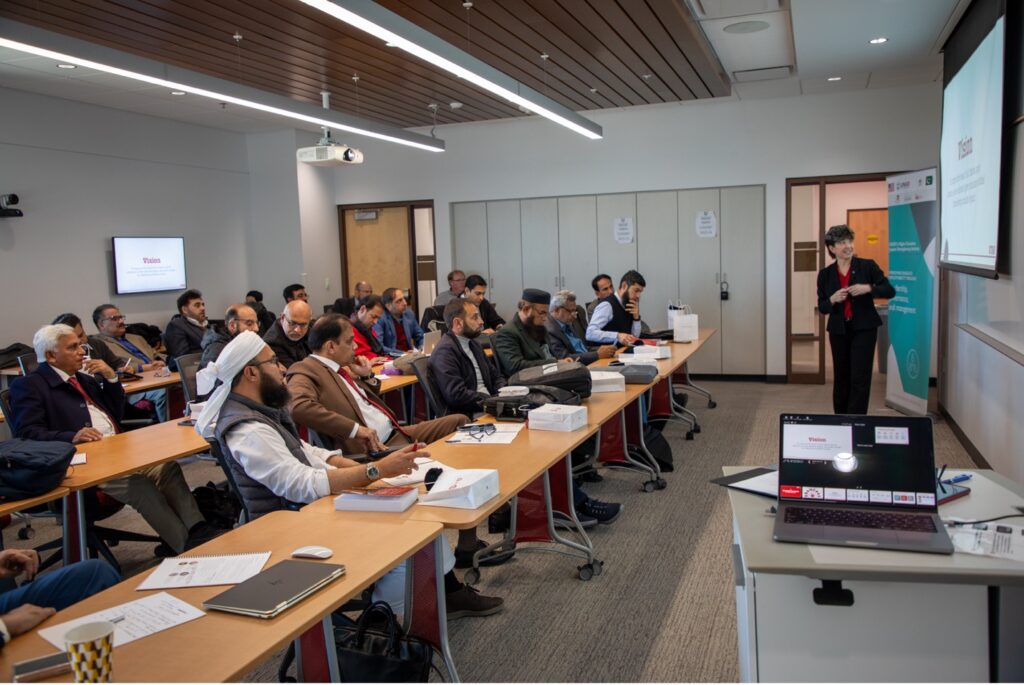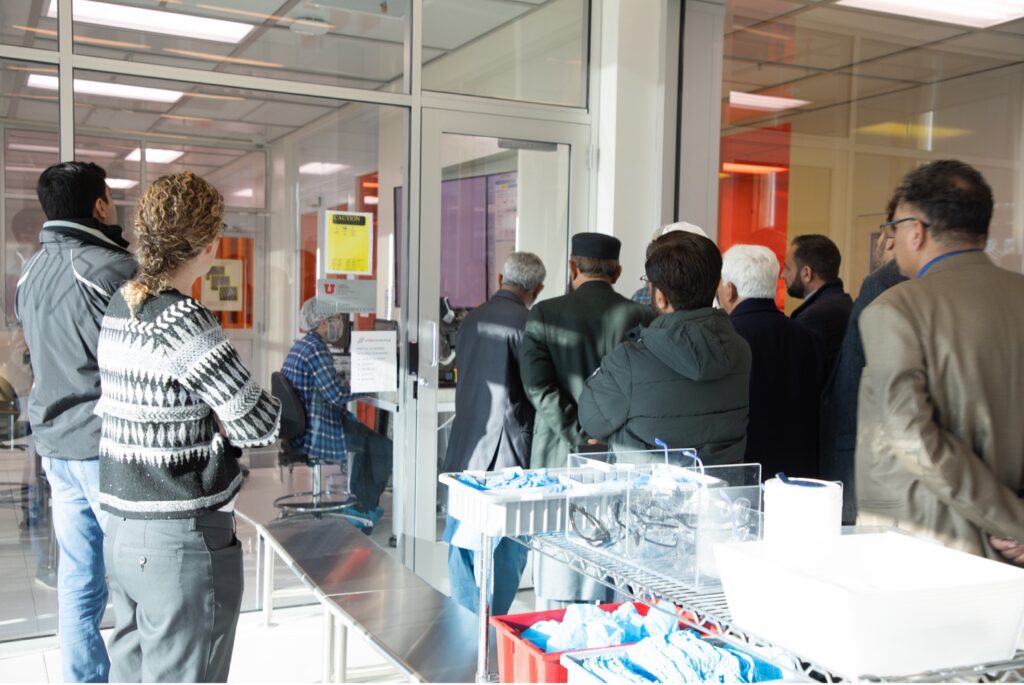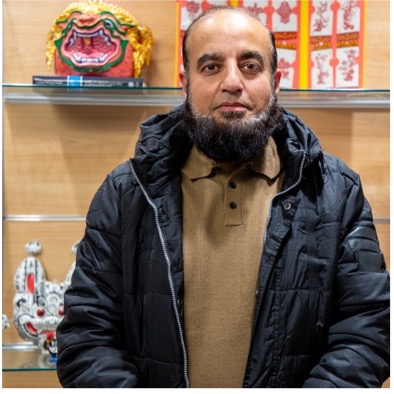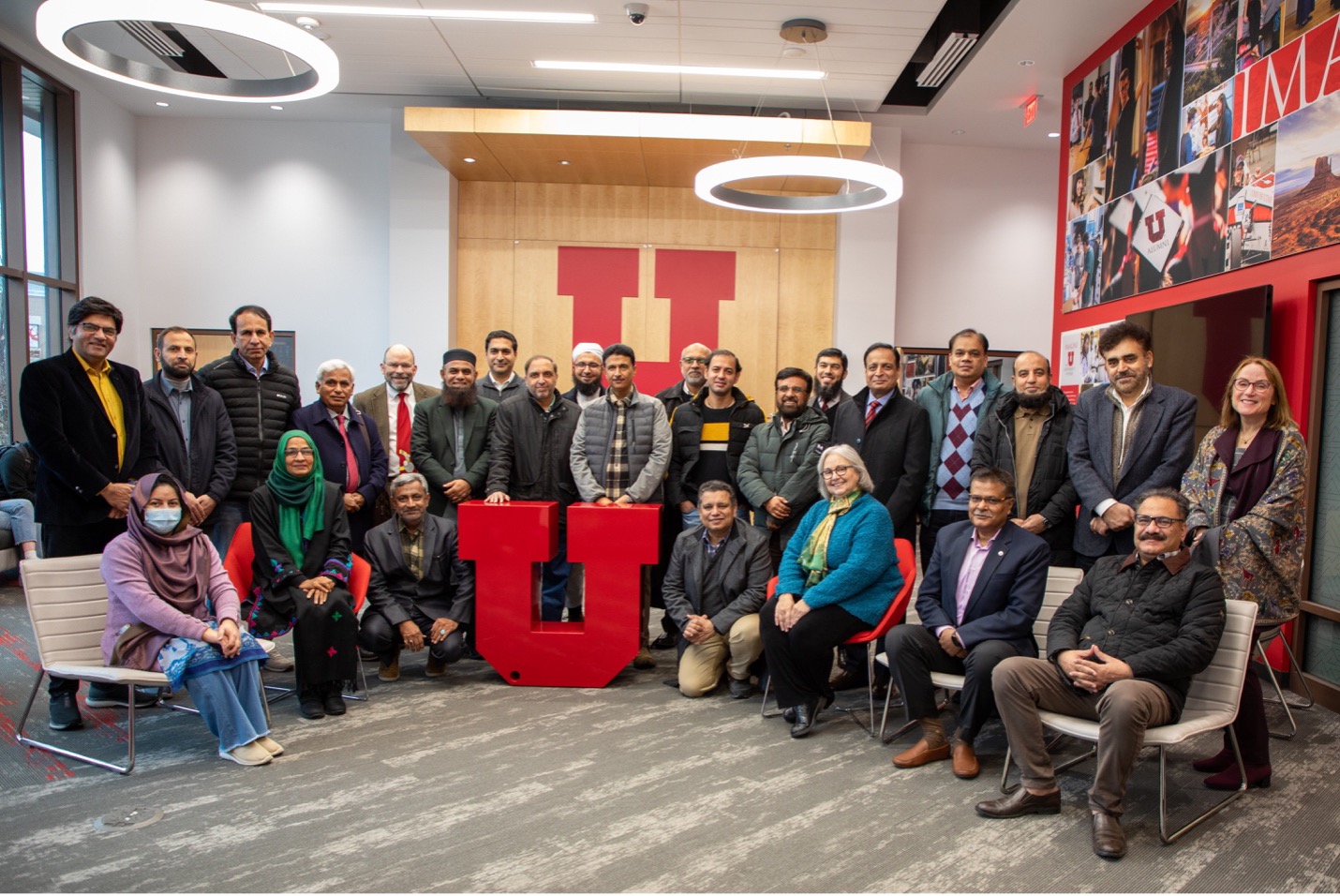With the vast portfolio of responsibilities that comes with the role, academic deans are notorious for having full calendars. So, it was no small feat to arrange for 23 deans of Pakistani higher education institutions to meet with over two dozen University of Utah deans and administrators during a week-long study tour at the U’s Salt Lake City campus from January 27 to February 3, 2024.
“I am grateful that so many of our U colleagues and our Pakistani partners were able to participate in USAID’s Higher Education System Strengthening Activity study tour. Our discussions were wide-ranging—setting institutional goals, connecting communities with universities, fostering research collaborations, and developing strategies to increase post-graduation employment. This breadth of pursuits reflects what makes a dean’s job so exciting, and of course also challenging at times. It was valuable to have the opportunity to come together as educators and administrators to share in the richness of this work and accelerate the development of each institution’s goals,” said Dr. Dave Kieda, Distinguished Professor of Physics and Astronomy, and study tour host.

Salt Lake City study tour learning activities
The week kicked off with Dr. Mitzi Montoya, U Senior Vice President for Academic Affairs, and Dr. Erin Rothwell, U Vice President for Research, presenting on the role of central administration in advancing a university’s goals, identifying emerging academic and research trends, and creating links between university research and industry.
A tour of the Utah Nanofabrication Facility helped participants gain an understanding of the role of a major campus research facility in advancing university research and how university research facilities support local industry and workforce training.

Up next was Katie Hoffman-Abby, Vice President of University Career Services and Student Employment, who spoke about strategies for engaging and fostering long-term, sustainable relationships with potential employers, measuring the effectiveness of career services, and how to use assessment for improvement.
Participants then toured Lassonde Studios, the U’s hub for entrepreneurship, to learn how the program trains students to identify market needs and opportunities.
On the third day of the tour, the Pakistani deans met with mentors and contemporaries in their respective disciplines to talk through strategic initiatives and develop implementation and assessment plans for their institutions in Pakistan. They also explored opportunities for potential collaboration with U.S. colleagues who share similar academic backgrounds.
A meeting with Jason Taylor, U Assistant Dean, focused on creating new academic pathways for student success, followed in the late afternoon by a passionate discussion on the value of a humanities perspective regardless of academic discipline or career pursuit with College of Humanities Dean Hollis Robbins.
The next day, the group explored the topic of online degrees and certificates as a tool for increasing student outcomes with Dr. Deborah Keyek-Franssen, Associate Vice President for U Connected Learning. Dr. Phillip Osteen, Dean for the U’s College of Social Work, led the group in a discussion of developing community-focused student employment connections.
The day concluded with a tour of the J. Willard Marriott Library by Donna Harp Ziegenfuss, Faculty Services Librarian, and Alfred Mowdood, Head of Faculty Services. Discussion topics included the academic role of U.S. university libraries compared to similar library facilities in Pakistan, how online-based information access and emerging artificial intelligence technology is changing the mission of university libraries, and how the libraries are evolving to meet the changing needs of academics, research, and student success.
On the final day of the tour, the Pakistani deans took the spotlight, offering their own presentations on strategic initiatives they plan to implement at their respective institutions because of the HESSA training.
The role of study tours
 Study tours are an important part of USAID’s HESSA. They offer an immersive, experiential learning environment and foster long-term partnerships between administrators across institutions. The resulting sense of community and camaraderie supports participants in achieving larger goals for their colleges and universities.
Study tours are an important part of USAID’s HESSA. They offer an immersive, experiential learning environment and foster long-term partnerships between administrators across institutions. The resulting sense of community and camaraderie supports participants in achieving larger goals for their colleges and universities.
After participating in the recent training, “I would like to establish a good mentoring and counseling system in my university, and work on industry-academia partnership to support student employment,” said Dr. Muhammad Khurram, dean at Pakistan’s National University of Science and Technology (NUST).
In addition to sending U personnel to Pakistan to deliver workshops, and hosting virtual programming, the U has welcomed program participants to both its Salt Lake City campus and U Asia Campus.
About HESSA
USAID’s Higher Education System Strengthening Activity is a $19 million, five-year project that aims to bridge the employment gap between industry and academia and enhance the capacity of Pakistani universities to deliver graduates well-prepared for the demands of the modern workplace.
The University of Utah is the lead implementer and project partners include the University of Alabama, the Institute for International Education, Pakistan’s Higher Education Commission (HEC), and 16 Pakistani partner institutions.
The trio of American institutions is working closely with the HEC and Pakistani colleges and universities to deliver trainings, host study tours, instigate networking, advance research and innovation, and spearhead equity initiatives.

